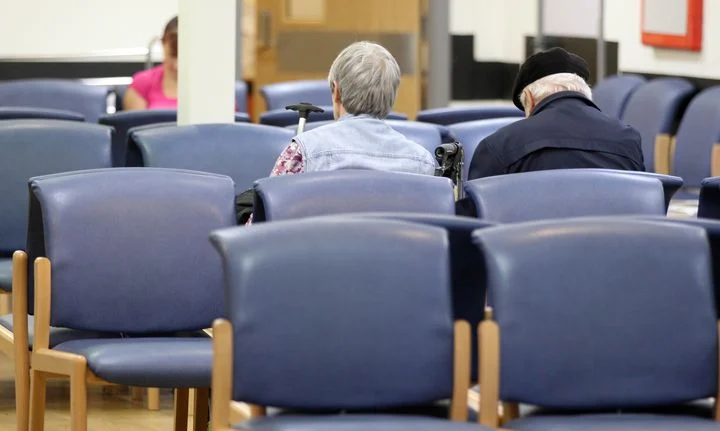
The move is aimed at slashing waiting lists, which have increased for three consecutive months, and ensure 2.5 million fewer people are waiting more than 18 weeks for treatment by 2029.
The health service has also set a target for 85% of people with a cancer diagnosis to have their first treatment within two months of being referred to specialists by 2029.
Since this 62-day measure was introduced the figure has never been higher than 71.7%.
The new document published by NHS England shows there will be financial incentives for hospitals to ensure more patients are treated in places such as community diagnostic centres, as set out in the Government’s plan for the health service.
According to NHS England, it will take action to improve GP access by consulting on a new priority to give same-day appointments for urgent patients.
The plan also sets a target for community health services to see 80% of patients within 18 weeks.
The latest figures show an estimated 7.41 million treatments were waiting to be carried out at the end of August, relating to 6.26 million patients, up slightly from 7.40 million treatments and 6.25 million patients at the end of July.
Sir Jim Mackey, chief executive of NHS England, said: “For too long the NHS has been stuck in a doom-loop of not being able to properly plan beyond each financial year and responding to overly bureaucratic processes that have stifled local leadership and innovation.
“We have to get out of the trap of short-term thinking and break the cycle of ‘just about managing’.
“Today’s publication – the product of intensive work over the summer by the NHS leadership community – resets how the NHS works, aligns incentives to delivering more care and creates a clear route map by which the NHS can meet its commitments on improving access to care and get waiting times back to where patients want and need them to be.”
NHS analysis suggests the target of 85% of people with a cancer diagnosis having their first treatment within two months of a referral could benefit more than 300,000 people, with the aim of treating 96% within a month.
The latest NHS England data for August shows 69.1% of patients had waited no longer than 62 days from an urgent suspected cancer referral, or consultant upgrade, to their first definitive treatment for cancer, down slightly from 69.2% in July.
The Government and NHS England have set a target of March for this figure to reach 75%.
Professor Peter Johnson, national clinical director for cancer at NHS England, said: “Getting back to delivering against these two key constitutional standards means faster cancer care is on the horizon for tens of thousands more patients.
“We’ll achieve this through investment in community diagnostic centres delivering vital tests closer to people’s homes, more productive ways of working in NHS cancer teams, and community cancer services providing patients better support during and after their cancer treatment.”
According to the plans, by 2029, 95% of appointments after triage will be available through the NHS App; only patients who need a scan will be offered one with the rollout of an online software platform that provides up-to-date clinical guidance; and areas of the country that fail to make progress on tackling unnecessary follow-up appointments will also be performance managed.
Sir Jim added: “The NHS needs to win back the confidence of the patients and communities it serves – so starting from now, every provider across the NHS will be required to more carefully measure what patients are telling them about their experience of care and act swiftly to fix the things that matter to them.”





